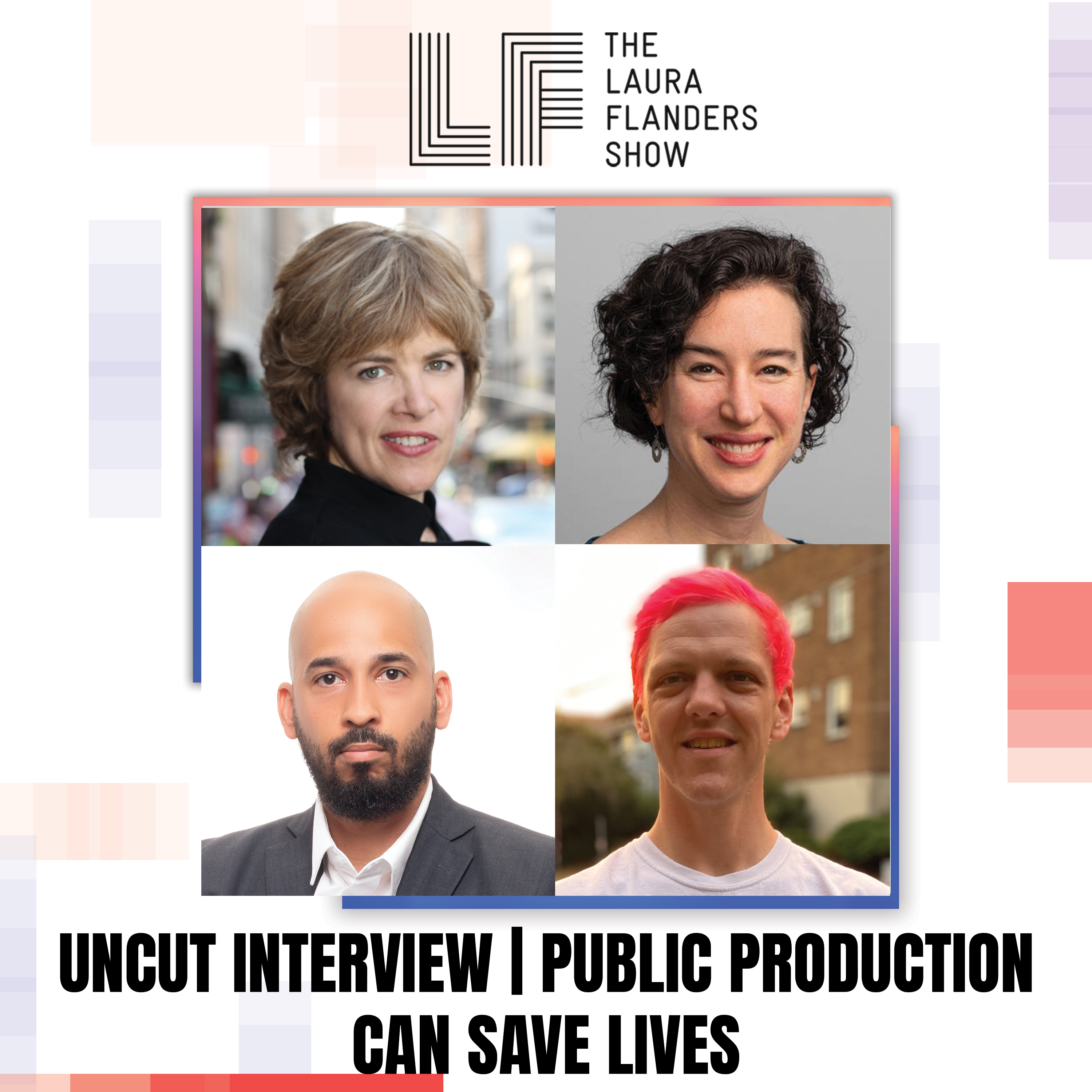Pledge as little as $3/month for early access to the full, uncut conversation.
For more audio extras, subscribe to The Laura Flanders Show on your favorite podcast platform.
Pharmaceutical prices in the US are astronomically high and many vulnerable people can’t afford the drugs they need. Public ownership of drug manufacturing can break the private monopolies and save lives, but it’s going to take a lot of public pressure to make change. Today, we look at the progress that’s being made moving towards tackling America’s killer drug price problem at the state and national level, and globally. The Biden administration’s agreement with manufacturer Eli Lilly to cap insulin prices at $35/dose is a step, but what would really make a difference would be to get private profit and monopoly patents out of the health business altogether. In the US, California is taking the lead. Advocates Dana Brown, Luis Gil Abinader and Kevin Wren, join Laura to bring us an update – and in her closing, Laura shares some news about the impact of our investigative series from North Carolina.
“This has economic and social benefits for all of us . . . Having the public sector take a bigger role in the production of distribution of medicine historically starts to shift the balance of power.” – Dana Brown
“Our current model for vaccine research development and distribution globally is colonial in many ways, because big pharmaceutical companies have the ability to decide who gets vaccines, treatments, insulin and other pharmaceutical products, and when and at which prices.” – Luis Gil Abinader
“10% of the population has a chronic illness, and are exploiting and extorting our need for this drug. It’s coming to an end because people like me are rising up and talking about it and sharing our stories.” – Kevin Wren
Guests
- Dana Brown: Director, Health & Economy, The Democracy Collaborative
- Luis Gil Abinader: Legal Scholar; Fellow, Georgetown University Law O’Neill Institute; Board Member, Universities Allied for Essential Medicines (UAEM)
- Kevin Wren: Queer Activist & Patient Advocate Chapter Leader, California #insulin4all; T1 International; Queer Activist & Patient Advocate, MA Evans School of Public Policy & Governance, University of Washington
Portions of this interview are featured in our episode, “America’s Drug Price Nightmare: Public Production Can Save Lives”

















